Q&A: Charlie Beck’s years as LAPD chief were marked by challenges and reforms
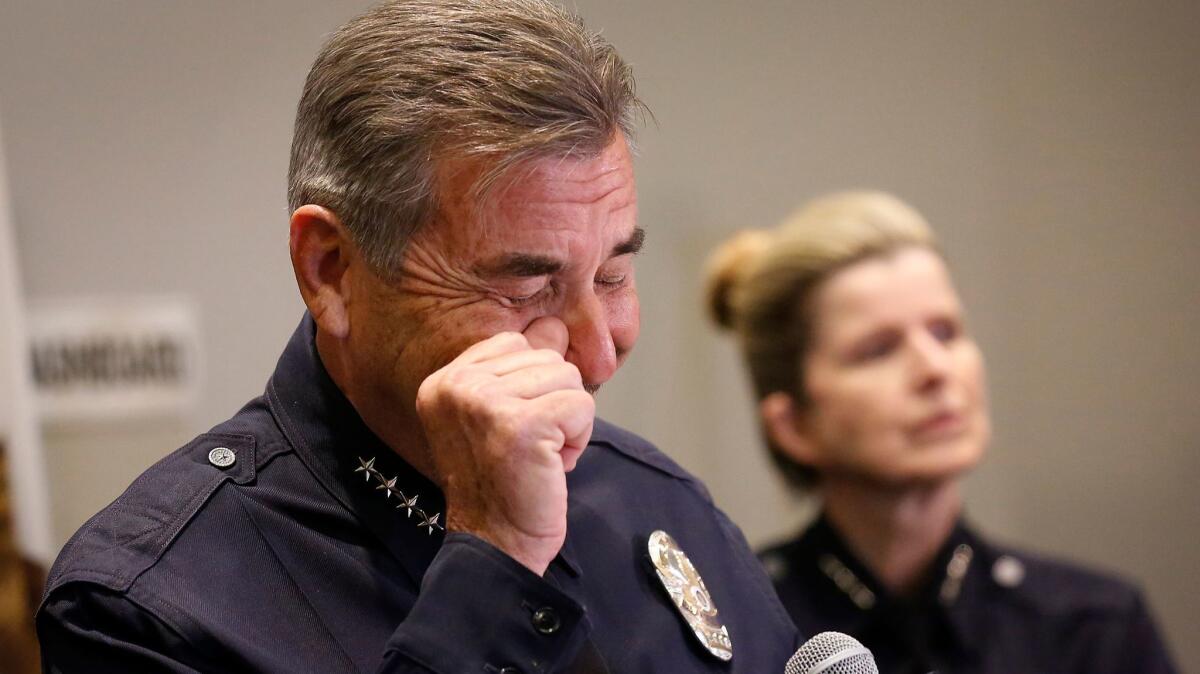
It was an uncertain time when Charlie Beck took the helm of the Los Angeles Police Department just over eight years ago.
The agency had undergone sweeping reforms under a consent decree imposed after the Rampart corruption scandal, but officers in gang units were balking at new rules requiring them to disclose personal financial information. Efforts to add dashboard cameras to patrol cars had long stalled. And the financial crisis was battering the department’s budget.
The plain-spoken, down-to-earth Beck was taking over from William J. Bratton, an iconic law enforcement leader who enjoyed a national reputation and who had presided as LAPD chief over a dramatic decline in crime.
In the selection of Beck, the LAPD was now getting a true insider, a department blue-blood who had followed his father onto the force. He had rejected the old ways of viewing the Police Department as akin to an occupying force and instead embraced building relations between the agency and minority communities long distrustful of police.
During his tenure, Beck was credited with shepherding the LAPD through years of turbulent budget woes and continuing its reforms. In the face of nationwide and local protests over police shootings of black men, he oversaw efforts to encourage his officers to avoid using deadly force by trying to verbally defuse tense encounters with civilians. And he began rolling out body cameras department-wide, marking a new era of accountability.
But there were dark and controversial times too. He presided over the department when Christopher Dorner, a rogue ex-LAPD officer, went on a deadly rampage in 2013 targeting cops and their families.
Critics accused him of being too lax when it came to punishing misconduct by officers. Protesters said he didn’t do enough to stop officers from using force, and activists affiliated with the Black Lives Matter movement spent weeks camped outside City Hall urging the mayor to fire Beck. African Americans residents continued to mistrust the department at much higher levels than other racial groups in the city.
After announcing on Friday that he would step down in June before completing his second term on the job, Beck sat down with The Times and reflected on his LAPD career of more than 40 years.
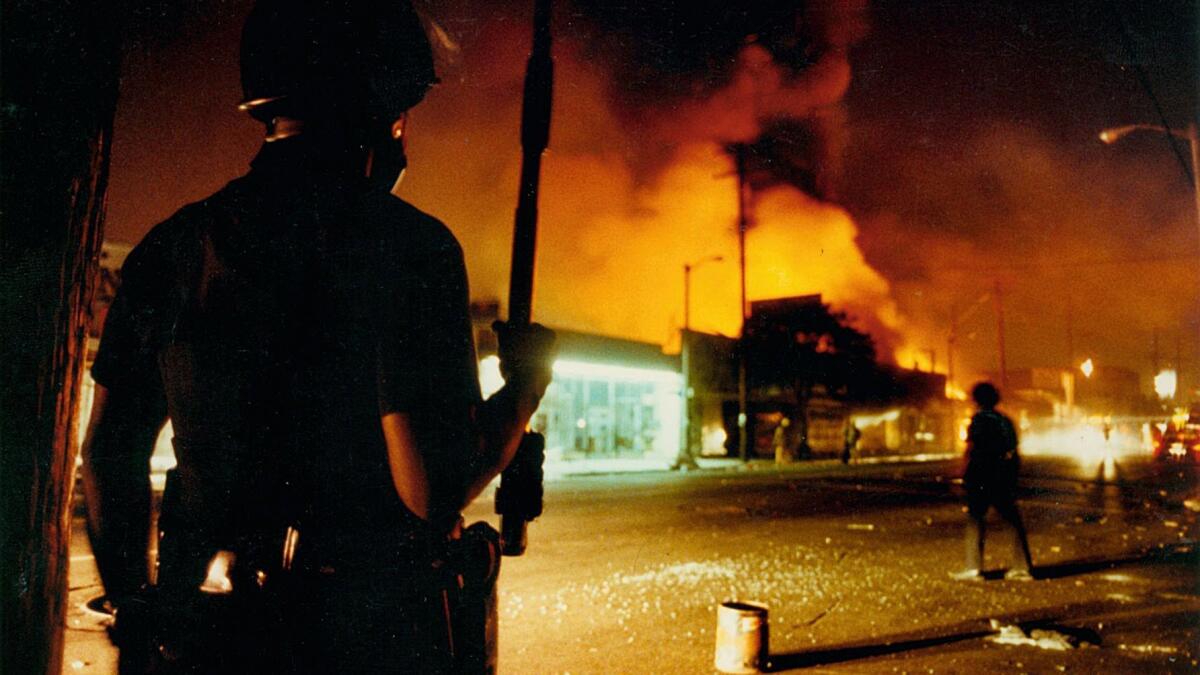
What have been some of the most difficult moments during your time as a police officer?
The lowest time was the riots of ’92. And actually, the whole decade of the ’90s was devastating to the city of Los Angeles, and to the Los Angeles Police Department, and part of the reason it was devastating to the city was the Los Angeles Police Department. That happened as I was becoming of age in the department. I was a senior sergeant when it happened, and soon became a lieutenant and then a captain during that time period. And that really formed my beliefs in policing. I swore to myself that if I ever got in a position of significant authority that I would never let this happen again. Ever.
There’s a couple of absolutes in my tenure as chief, and one of them is that would never happen again.
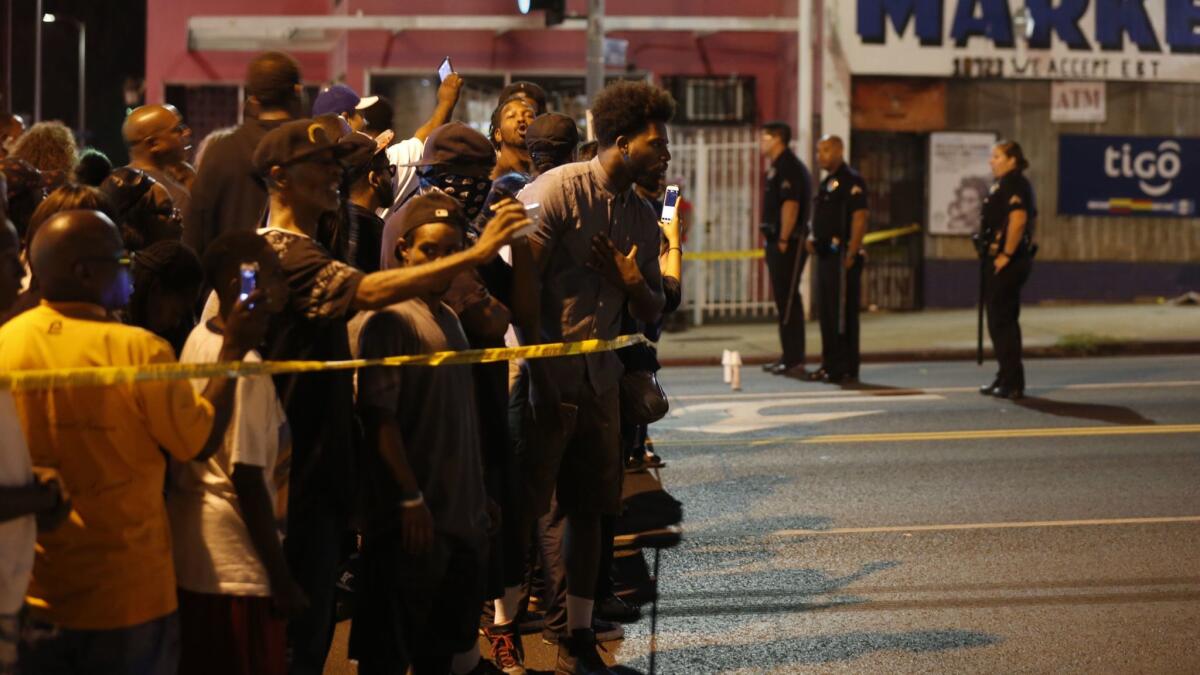
What are your thoughts on this moment in policing?
It is somewhat of a difficult conversation, because I think a lot of it is concealed in rhetoric and misinformation and an inability to understand what police use of force is really about. It is a difficult conversation to have because people have such black and white opinions about how this works. And I use “black and white” on purpose because some of this is racially charged, some of it is about disdain for authority, some of it is about not understanding the difficulties of policing in a society that has far too many guns and far too much violence.
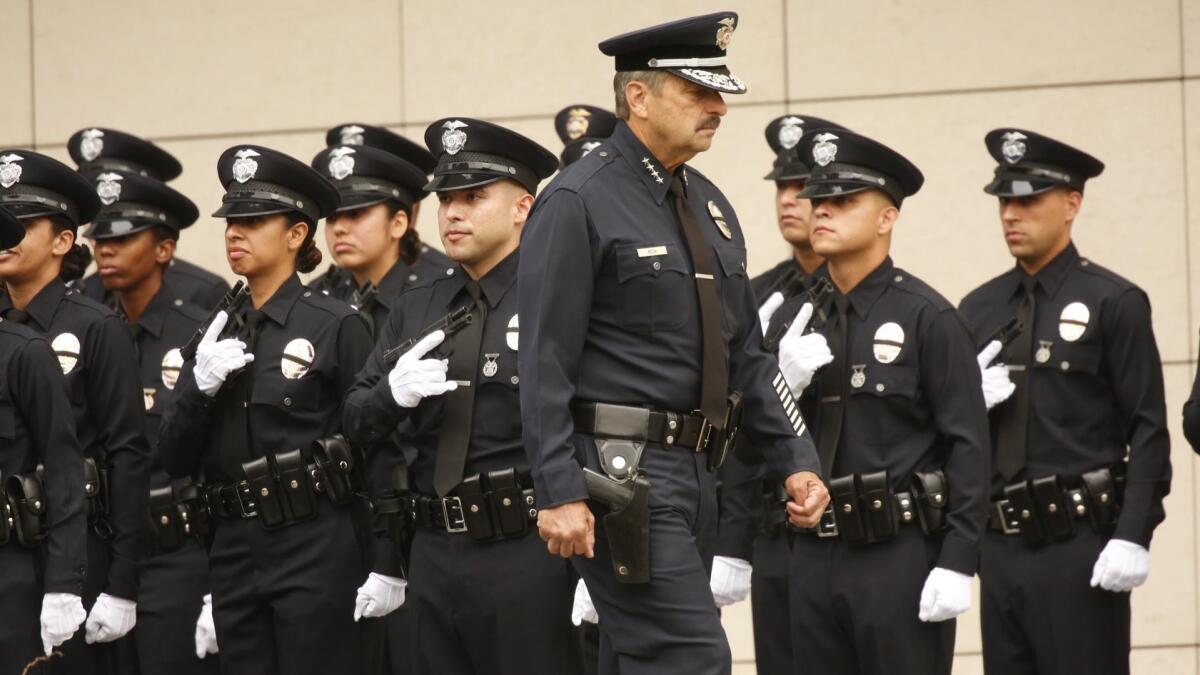
What would you tell yourself as a young officer, knowing what you know now?
Young officers get tied up with the romance of making arrests and putting away the big bad guy, but sometimes you can make just as big a difference by intervening in a kid’s trajectory. Sometimes you can make just as big a difference by comforting a victim. These are things that come with maturity and time on the job.
The problem with policing is that it’s built upside-down. By the time you become wise enough to do it, you’re too old to do it.
What are some of the biggest challenges facing the LAPD?
Of course, controlling crime. … We’ve enjoyed some significant lows, and yeah, we have some ups and downs and variations, but basically crime is still very low, which is really good. So it’s important that we maintain those, that we don’t lose those, and we don’t lose sight of what works. What works is strong community partnerships, recognizing that police aren’t the only solution to this, and bringing in outside folks, and then having good, targeted law enforcement that addresses the most significant kinds of violent crime.
But our most significant gains in crime will be made by doing something the city needs to do for a lot of other reasons, which is lessening homelessness. … People living in close proximity to each other on the streets is a recipe for crime. We need to fix that. Not just for the crime reasons. But for humane reasons. It’s also a recipe for dying too soon. It’s also a recipe for disease. It is just bad on so many levels.
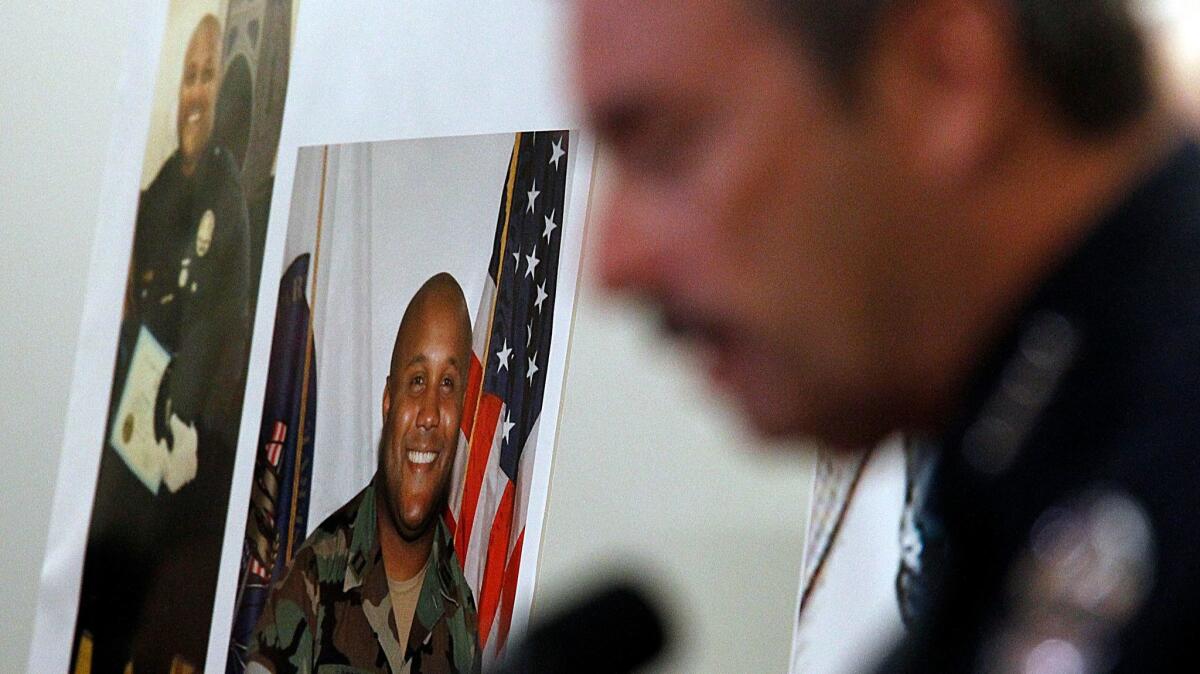
What were some of your most challenging moments as chief?
There’s the big kind of issues that people think about, like budget issues. Then there’s the stuff that is more visceral, like Dorner. Obviously the biggest management challenge was when I took office and we had almost $80 million taken out of our budget. … That just was very difficult to manage and very hard on the department.
And then on top of that, we had the consent decree. In-car video, which was the necessity to get out of the consent decree, was stalled. Financial disclosure was a huge rank-and-file issue, which that was also a necessity to get out of the consent decree. Yes, we had made a lot of progress on the consent decree, but two major pieces were undone that needed doing.
How do you summarize the last eight years?
Are there things I would have done different? Yeah. But I’m very satisfied with how I’ve handled most things. The vast majority of things. And the things that I’m not happy about, the things that I didn’t do as well as I could have done or that I’m not satisfied with, didn’t come from a place that I feel ashamed of or bad about. Any mistakes I made were honest mistakes and were the mistakes of someone trying to do a very difficult job that you don’t always get right. But by and large, I’m satisfied with how I’ve done.
What I look to is, is the organization better than when I came here? And I don’t think anybody, even my harshest critics, would disagree with that.
The interview has been trimmed and lightly edited for clarity.
For more Los Angeles Police Department news, follow me on Twitter: @katemather
UPDATES:
8:40 a.m.: This article was updated with additional background about Beck’s tenure as chief and the department’s challenges when he took over.
This article was originally published at 7 a.m.
Sign up for Essential California
The most important California stories and recommendations in your inbox every morning.
You may occasionally receive promotional content from the Los Angeles Times.








